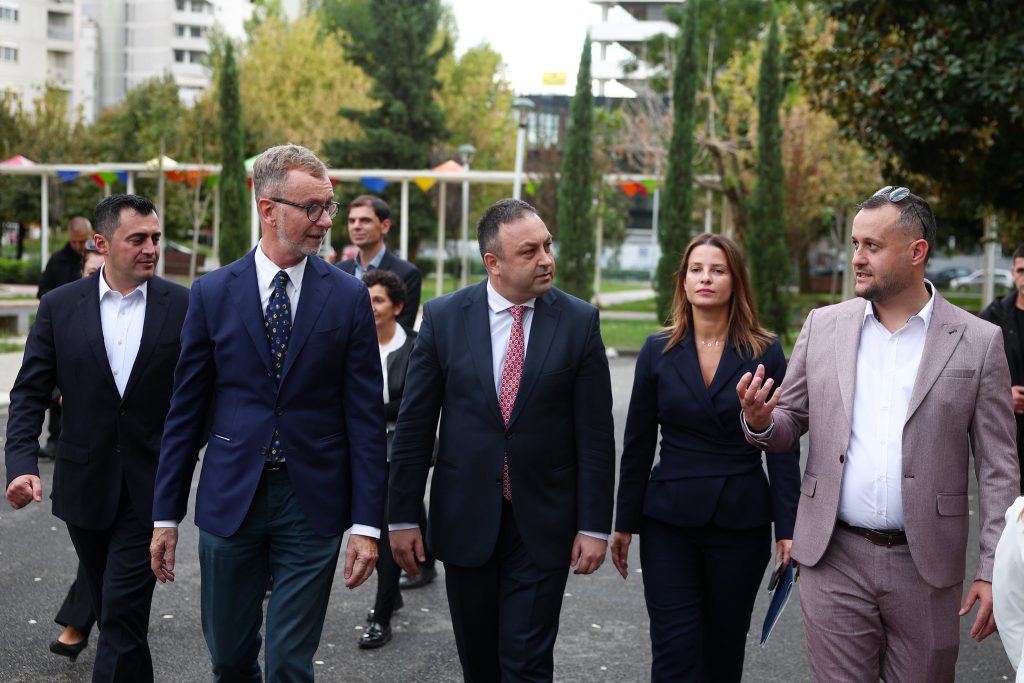Manastirliu Promotes Open Science and Sustainable Funding in New Science Draft Law
“There won’t be a new Ministry for Science, and university autonomy remains unaffected.”
Today, Ogerta Manastirliu, the Minister of Education and Sports, gave the Committee on Education and Public Information a new draft law titled “Science and Scientific Research in the Republic of Albania.” The goal of this draft law is to advance open science in our nation. Manastirliu underlined the necessity of amending the 1994 law in order to improve prospects for the advancement of science and scientific research in the nation. The creation of unique organizations that will oversee the promotion of scientific research for social development is one of the goals of this draft law, which is in line with EU scientific values.
“The creation of this draft law has involved nearly two and a half years of consultation with international experts and interest groups. The goal was to create a law that would both reflect and address the current issues and provide opportunities for the efficient operation of the open science system, an ecosystem that more than ever needs to be supported in a variety of ways. Expanding the base of actors involved in scientific research as one of the priorities of the European Research Area is also a requirement of the entire process of accession to the European Union, where the finalization of the Law on “Science and Scientific Research in the Republic of Albania” is included in Chapter 25 of the EC Report on Albania, “said the Minister of Education.
Minister Manastirliu emphasized the proposed law’s novelties, stressing the value of establishing new institutions and centers of excellence while promoting inter-institutional cooperation.
“The promotion of scientific careers and development through the development of scientific staff capacities, collaboration with researchers both locally and abroad, and additional funding and promotion mechanisms are some of the improvements included in this draft law. The first-ever drafting of a scientific and scientific research code of ethics that is in line with the European code of conduct for scientific research integrity; the development of funding for scientific research institutes and units, both public and private, based on a competitive process for programs or research projects. In addition to being structures and mechanisms that support scientific research, these laws also envision the establishment of “Centers of Excellence” or “Special Units” with the status of “Center of Excellence.” These laws are new, and they will undoubtedly encourage collaboration between organizations that conduct scientific research, corporations, government agencies, civil society, and other interested parties,” said Manastirliu.
Minister Manastirliu clarified that there will not be a new Ministry of Science, saying that the proposed law calls for the establishment of a National Council for Science.
“This draft law establishes the National Council for Science and Scientific Research, a collegial advisory body to the Prime Minister, with the task of improving scientific research activities in the country by making recommendations on priority areas for investment and within the processes and standards of the European area. As for the issue related to another point that has been circulated in the media in recent days regarding the establishment of a new Ministry of Science, I would like to clarify that the responsibilities of the ministries are realized by a decision of the Council of Ministers. The responsibility for science falls under the Ministry of Education, so no new ministry will be created,” Manastirliu said.
The new proposed law, as Manastirliu noted in the Committee on Education and Public Information, gives universities more chances to do scientific research outside of their borders without compromising their autonomy.
“The autonomy of universities is not affected in this situation. This law does not contradict or violate the Higher Education Law; rather, it encourages more higher education institutions to venture outside their walls and participate in scientific research, innovation, technological development, and national development through their faculty, staff, and students. It also promotes internationalism by providing opportunities for cooperation and mobility with other prestigious foreign institutions, allowing faculty to participate in technology transfer, technology parks, and the larger scientific community without sacrificing their autonomy.”
Additionally, the goal of this proposed law is to guarantee research outcomes that uphold national identity, public health, environmental protection, and sustainable development. In an effort to advance social welfare, technical advancement, and innovation, it encourages the gathering and sharing of knowledge for the benefit of the general public. Additionally, the proposed law promotes collaboration between research institutions, corporations, and civil society, strengthens European integration, equalizes chances for scientific workers, and fosters worldwide connections for Albanian researchers. The draft law also governs this system’s funding and incorporates a national registry of research institutions. This proposed law, which guarantees sustained funding for scientific research and innovation in the nation, is a significant step toward advancing and developing science.



